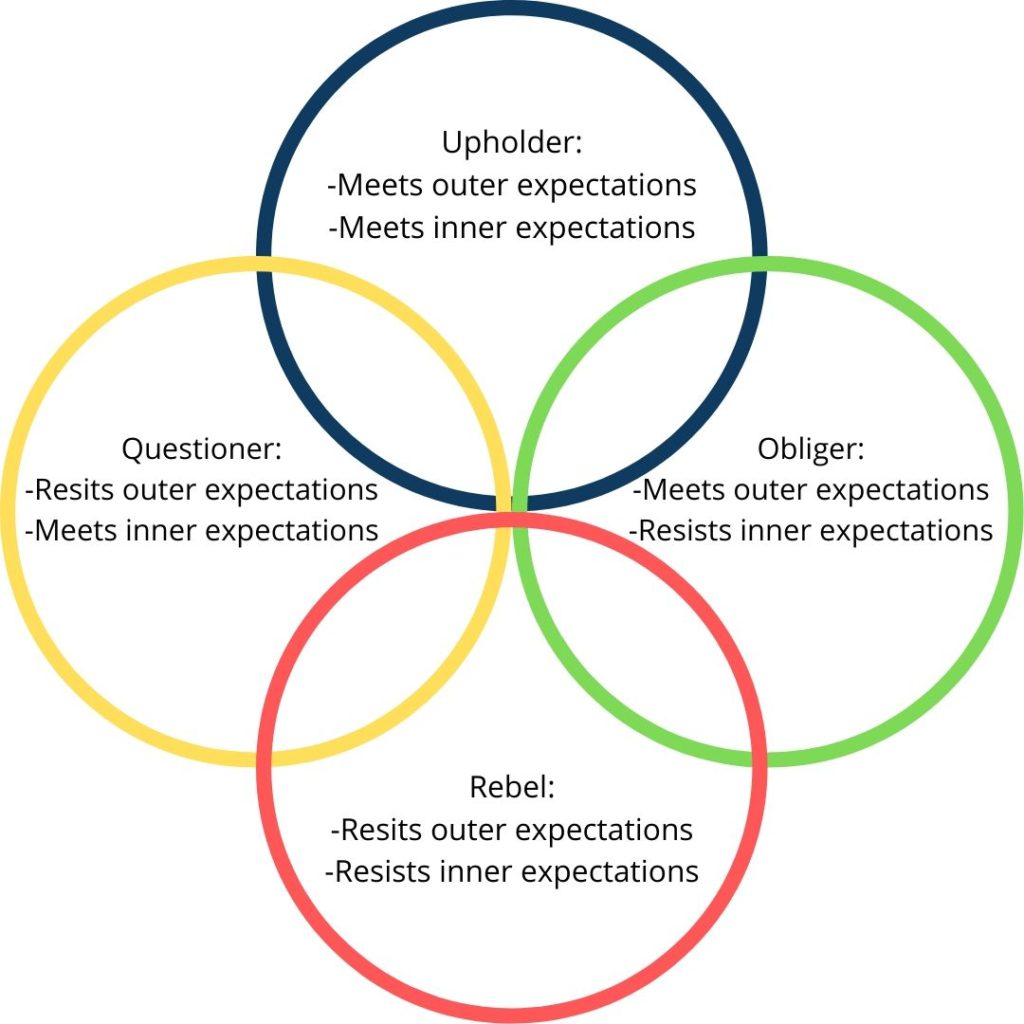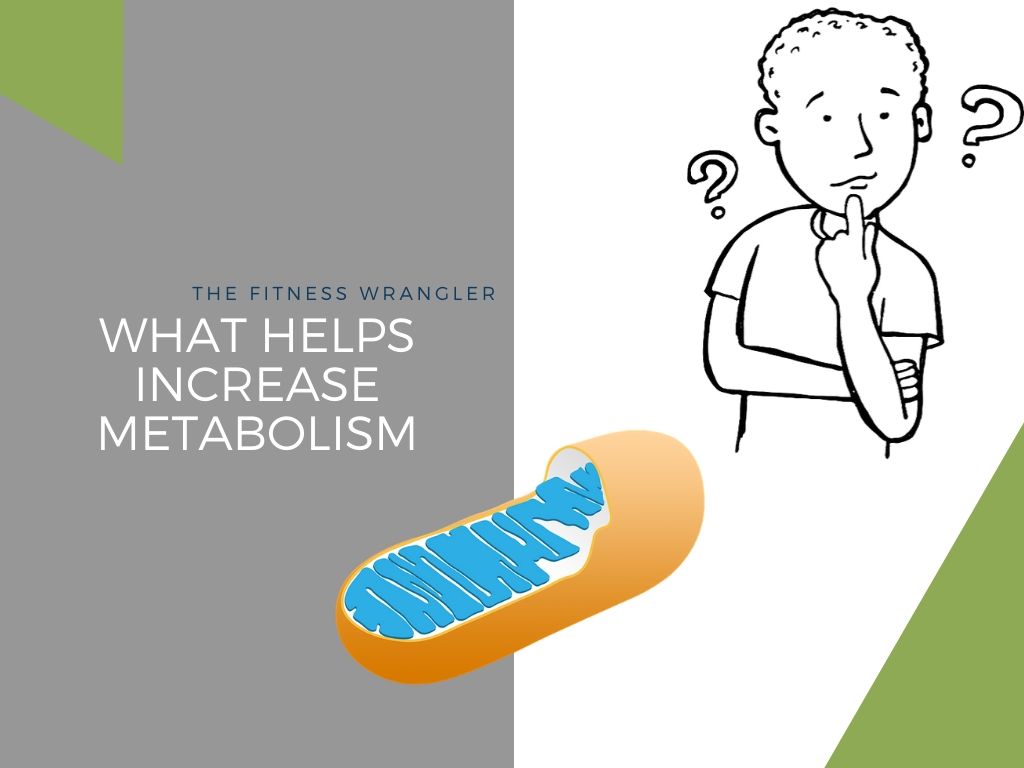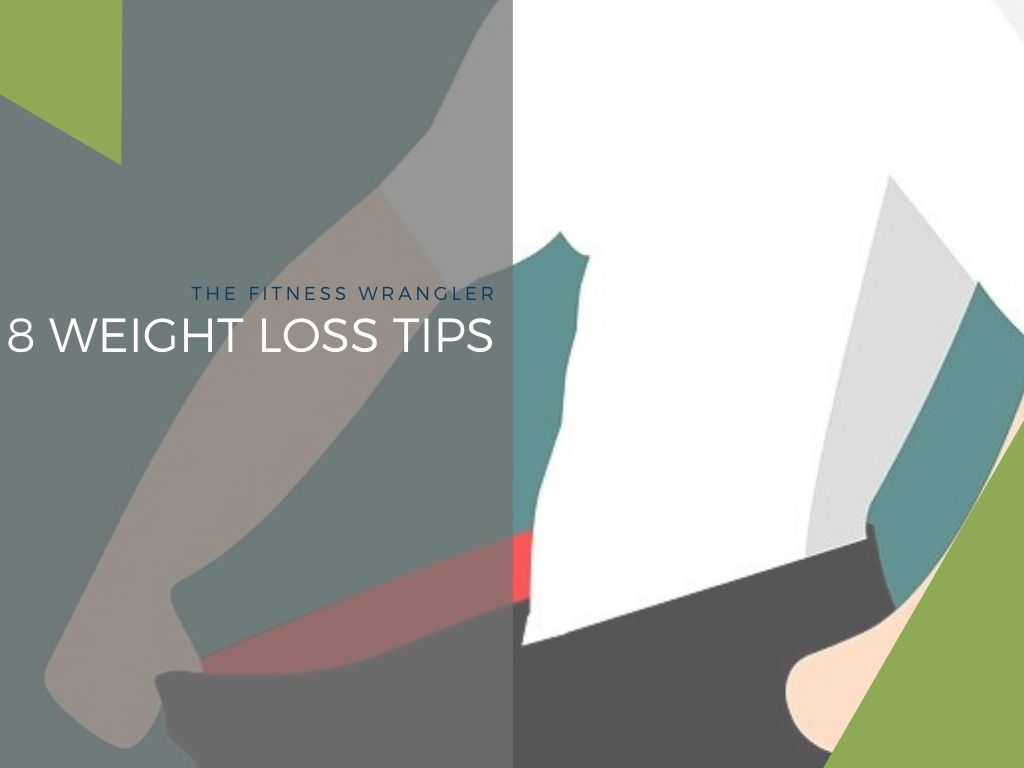I’m sure you’re familiar with a personality assessment. It’s basically a series of questions that gauges your motivations, thinking habits, action inclinations, introversion/extroversion and more on everything summarizing one’s personality.
DISC is one of the most popular methods of assessing someone’s personality. DISC is good for measuring the way we work with other people, how we react to situations when stressed, the level of thoughtfulness we have, how action oriented we are and more.
But if we want to identify a deeper level motivation and the ‘how’ to do it that requires a different kind of personality assessment.
The Four Tendencies is a unique personality assessment that seeks to answer the question: “How do I get people—including myself—to do what I want?” created by Gretchen Rubin. Rubin is a 5-time New York Times best selling author and over 2.8 million people have taken the quiz.
I’ll be explaining the Four Tendencies throughout the article, showing you the 2 underlying motivators to get people to take action and which method would be right for you to lose weight and transform your body.
The Four Tendencies And 2 ‘Motivators’
They are as follows:
- Upholders: Curious what should be done
- Questioners: Want to know why
- Obligers: Require external accountability
- Rebels: Want to do it their own way
These Four Tendencies are split into 2 ways people handle expectations (“2 motivators”).
- Outer expectations (deadlines, school homework, helping a friend…etc)
- Inner expectations (diet or fitness regiment, New Years resolution)
Just looking at these it may be challenging to know which one you’d best fit. Rubin explains that while we all have some of these tendencies in our personality, we solely fit into one (while maybe leaning in a direction of another).
If you want to take the quiz and find out which you are, you can do that by clicking here (5 minutes).
The 2 Motivators
The 2 motivators, as explained above, are either through outer or inner expectations. The response to those motivators are what describe each person’s ‘tendency.’
The Four Tendencies expectations:
- Upholder:
- Meets outer expectations
- Meets inner expectations
- Questioner:
- Resits outer expectations
- Meets inner expectations
- Obliger:
- Meets outer expectations
- Resists inner expectations
- Rebel
- Resits outer expectations
- Resists inner expectations
Now, what we want to focus on for finding the best strategy for weight loss and body transformation is to see if you need a plan of exactly what to do (upholder), strategies that have deep research behind it (questioner), external accountability (obliger) or strategies that give multiple variations to freely customize (rebel).
Once you’ve identified which tendency you are and understand your type of motivation then you can implement a weight loss plan that works for you.

Weight Loss Strategies For The Different Tendency Types
Upholder
If you’ve identified yourself as an Upholder then your weight loss strategy may be two-fold. Getting a workout plan and then laying out the steps you need to follow to achieve it.
For example, if you are trying to lose weight through home workouts then it may be best to set a specific time of the day to workout consistently each time. That way you have the schedule in place you can easily follow.
Questioner
Questioners need to know why and be convinced of something before they commit to it.
I know this tendency well because I fit mostly into the Questioner. I always want to know why, I have endless curiosity and if I’m not on board with something it’s difficult to get myself to cooperate.
To lose weight as this tendency, do plenty of research behind multiple workout programs and pick the best one that works and makes sense for you.
Obliger
The Obliger is most common throughout the human race, Gretchen says.
Obligers find it hard to get themselves to hit goals if it’s just for them. But if it’s for other people they’ll easily jump to the cause and help out.
To lose weight with this tendency, join a fitness group class you like (example, Orangetheory for weight loss). That way it’ll keep you accountable to other people, the collective group and to your bank account because those classes aren’t cheap.
You can also get a friend to workout with that way you’re accountable to them. Just make sure they’re either a Questioner or Upholder so they’ll be driven internally to exercise; another Obliger wouldn’t work so well here.
Rebel
The Rebel is more challenging than the others to have follow a workout plan but not impossible.
For the Rebel just keep in mind they want to do it their way and not be told what to do by others or even themselves.
If you’ve identified yourself as a Rebel, then be sure to hit your weight loss goals from multiple different areas with plenty of choices involved.
For example, you can choose a workout plan that has 2 or 3 options per set/exercise. That way you have a general structure of the workout you want to go through and also can pick with specific exercise you want to do at that given time.
Overall, first steps are going to be taking the 5 minute Tendency quiz to see which you fit best into.
After identifying which seems mostly right for you, go with a general workout strategy outlined. Then implement a similar style that works with your personality for the nutrition portion of your weight loss goals.
Keep in mind, the Tendency quiz isn’t going to fit you perfectly into one category. We humans are complex beings so take it as a rough guideline but not to get too boxed in by it.
Then once you lose weight come back to me with your weight loss before and after! I’d love to see what your results are, your weight loss percentage and how you feel.
Disclaimers
I am not a doctor and do not recommend anything on this site, or blog post, for anyone without consulting with their doctor first. Please read the privacy policy for more information.
The information in this article is for educational and entertainment reasons, it should not be interpreted as medical advice or as a recommendation for a specific treatment. Always talk to your doctor and in the event of a medical emergency one should seek the help of a qualified and licensed health care provider.
There are affiliate links in this post where we’ll get a paid fee if you purchase something from that link – it won’t cost any more to you and in some cases may even save you money.














Leave A Comment